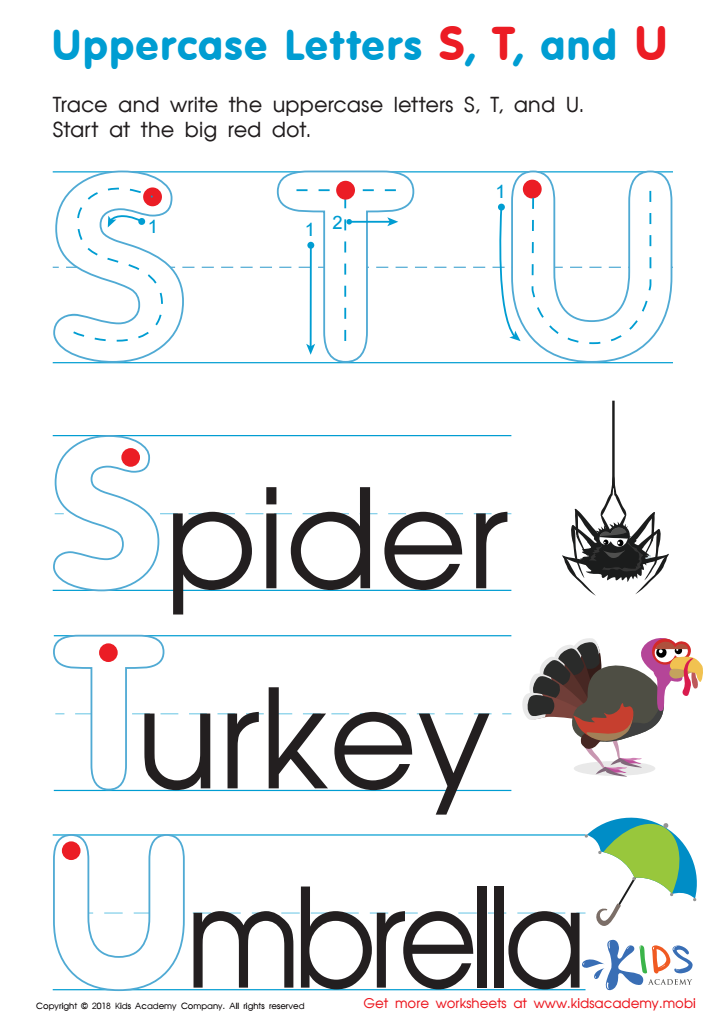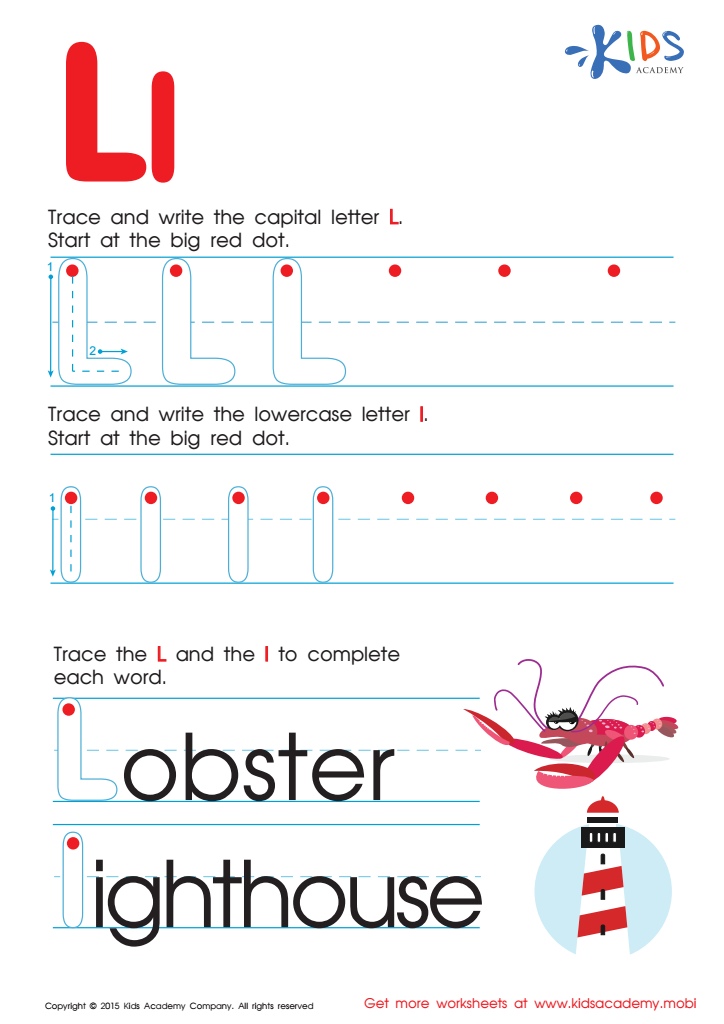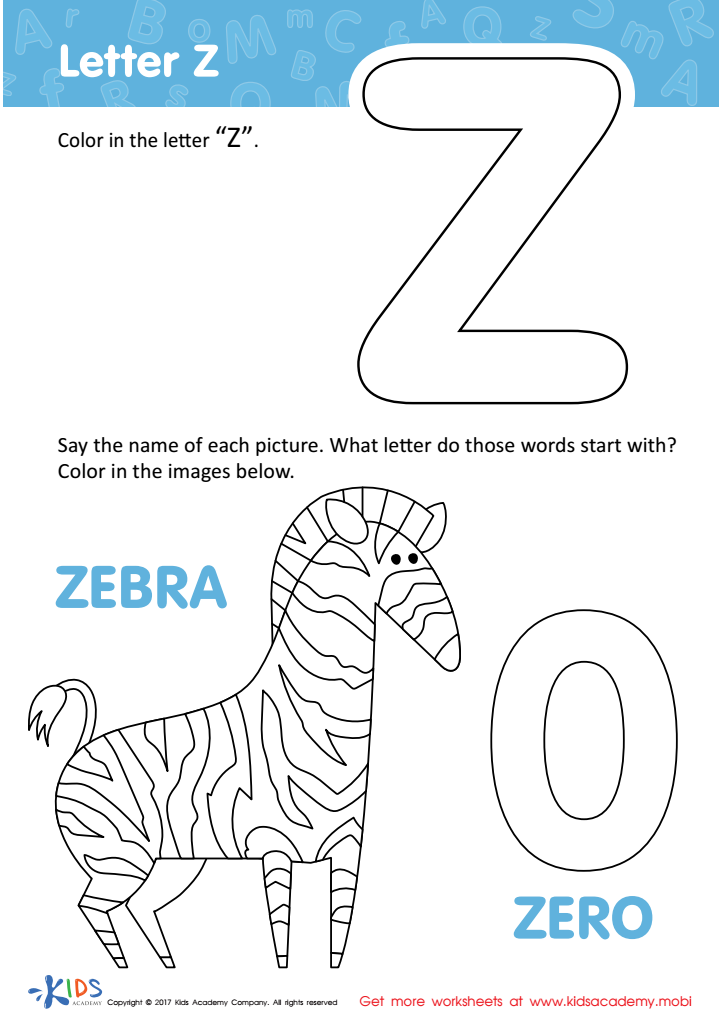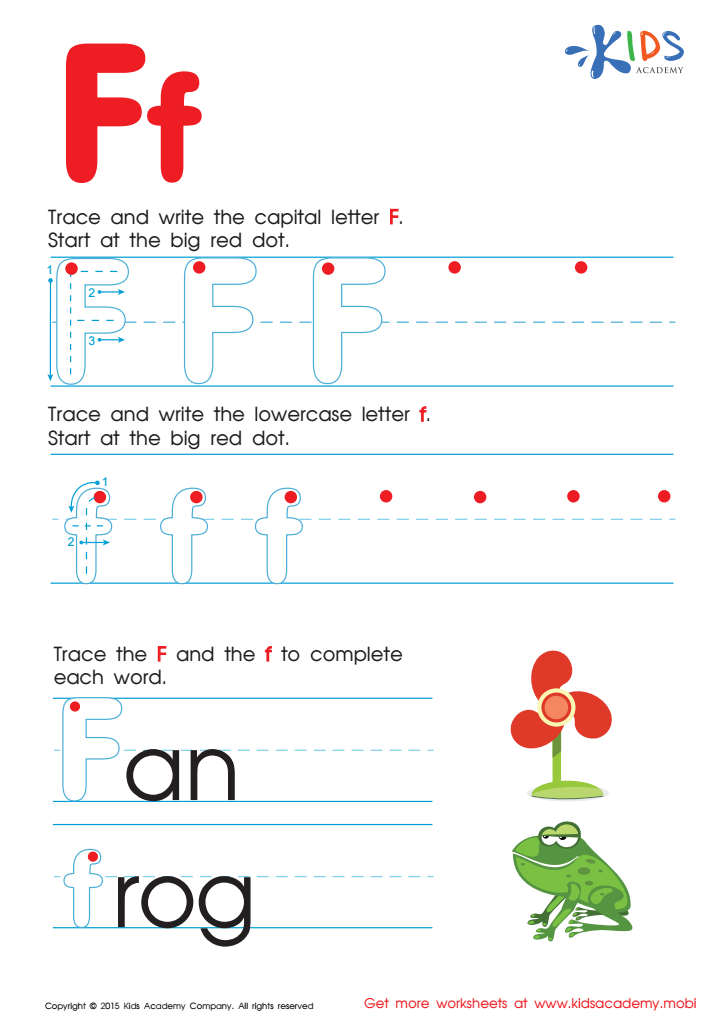Alphabet Learning Letter Recognition Worksheets for Ages 3-6
4 filtered results
-
From - To
Discover our engaging Alphabet Learning Letter Recognition Worksheets tailored for ages 3-6! Perfectly designed for early learners, these colorful and interactive sheets enhance your child's ability to recognize letters, fostering a strong foundation in reading and writing. Each worksheet is packed with fun activities like tracing, matching, and coloring, ensuring enjoyable and effective learning experiences. Set your child on the path to literacy success with our expertly crafted resources that promote confident, independent learning. Explore today and watch your child’s skills grow, one letter at a time!


Uppercase Letters S, T, and U Worksheet


Letter L Tracing Page


Letter Z Coloring Sheet


Letter F Tracing Page
Alphabet learning and letter recognition are critical foundations for literacy, profoundly impacting children's life-long education. For ages 3-6, this phase marks the start of formal learning where young minds are incredibly receptive. Parents and teachers must prioritize alphabet learning because it directly supports the development of crucial reading and writing skills. Recognizing letters enables children to understand that symbols convey sounds and meanings, forming the basis of words and sentences.
Letter recognition exercises fine motor skills as children learn to write, an imperative part of academic success. Additionally, early literacy skills are strongly linked to better academic outcomes later in life. When children can identify letters and their associated sounds, they are more likely to become confident and enthusiastic readers. Comprehension and communication in diverse subjects are fundamentally challenged without these early skills.
Furthermore, mastering alphabet recognition fosters independence and self-esteem. As children unlock the ability to read simple words and sentences, they gain pride in their accomplishments, nurturing an intrinsic motivation to learn. Emotionally, this prepares them to engage more actively and confidently in a classroom setting, translating to positive social interactions and a strong learning foundation. Thus, developing letter recognition from a young age is essential for a child’s overall cognitive and emotional growth.
 Assign to My Students
Assign to My Students



















